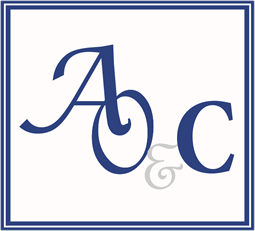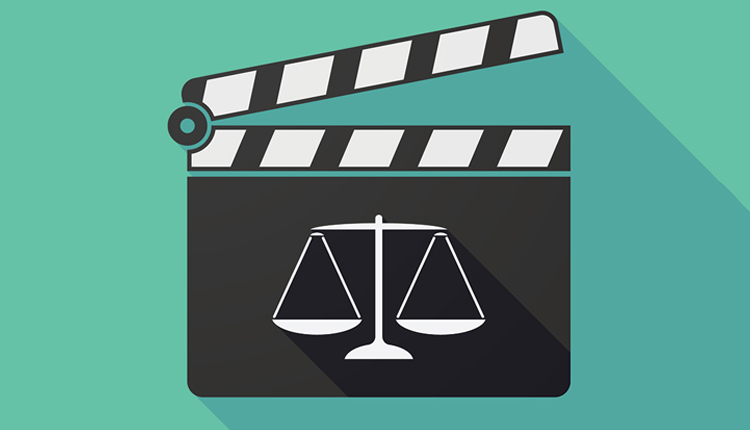In Nigeria’s Entertainment Industry, where creativity ranges from music, film, and television to the performing arts, the need for a legal framework is imperative. This article therefore takes us into the legal framework that shapes the entertainment industry in Nigeria, exploring the laws, regulations, and institutions. Although Nigeria does not have an overarching entertainment law statute, the field of Entertainment law in Nigeria still comprises the various sources of Nigerian law[1]. Some of which include the Constitution of the Federal Republic of Nigeria, Legislation, Case law and Statutory Bodies.
CONSTITUTION
The Constitution of the Federal Republic of Nigeria 1999 is the Grundnorm this means that the Constitution is the most important and foremost source of law in which other laws derive their validity. Section 1 subsection 1 of the Constitution states “this Constitution is supreme and its provisions shall have binding force on all authorities and persons throughout the Federal Republic of Nigeria. Section 1(3) states that any law inconsistent with any of the provisions of the Constitution shall be rendered null and void to the extent of its inconsistency. I have earlier stated that the Constitution is the major source of law so it is sacrosanct that Entertainment law is entrenched or in other words has a Section dedicated to the right to exercise art/entertainment of which can be found in Section 39 of the Constitution which provides for what qualifies as artistic freedom[2]. Art which forms or constitutes the basis for entertainment is a form of expression and Section 39(1) of the 1999 Constitution of Nigeria guarantees freedom of expression as a fundamental right. It states that “Every person shall be entitled to freedom of expression, including freedom to hold opinions and to receive and impart ideas and information without interference”[3].
LEGISLATION
Statutes and legislations are another major source of Entertainment law in Nigeria, legislations and statutes ranging from intellectual property rights to contractual agreements and taxation laws all govern the complex business of Entertainment in Nigeria.
The Copyright Act is perhaps the most important legal provision for Nigeria’s entertainment industry; it is aimed at safeguarding creative works and has led to the formation of the Nigerian Copyrights Commission. This Commission is responsible for overseeing and officially recording copyrights in Nigeria, serving as the body tasked with the protection of intellectual property rights.
Other laws include the Trade Marks Act, The Patent and Designs Act, The Nigerian Broadcasting Commission Act, The National Film and Video Censors Board Act, and The Nigerian Film Corporation Act. The Trademarks Act was created to safeguard brands and unique symbols by providing exclusive rights to those who register. It specifies the requirements for registration, ensuring that symbols are unique. It also oversees the length and renewal of trademarks, protecting the identity of the brand. For instance, in the entertainment industry, famous logos or symbols linked to artists will be eligible for protection under this Act, preventing unauthorized usage.
The Patent and Designs Act is dedicated to encouraging innovation by protecting new inventions and decorative designs. The Act specifies the types of inventions that are eligible for patent protection, with a focus on their originality and practical use in industry. The Act also defines industrial designs as any combination of lines, colors, and three-dimensional forms that are intended to be used as a model or pattern[4].
The National Broadcasting Commission Act regulates the broadcasting sector in Nigeria. It was also responsible for the creation of the Nigerian Broadcasting Commission (NBC), the body responsible for regulating the broadcasting industry.[5] There is also the Nigerian Broadcasting Code, which was made by the NBC under the NBC Act. The Broadcasting Code represents the minimum standards for broadcasting in Nigeria.[6]
The National Film and Video Censors Board Act was enacted in 1993 to provide a regulatory framework for film and video works in Nigeria. It established the National Film and Video Censors Board(NFVCB) as a regulatory body with the powers assessment, classification and registration of films and video works across Nigeria. It is empowers the NFVCB to grant licenses, at a fee, for distribution and exhibition of films.[7]
The Nigerian Film Corporation Act was established in the year 1979, to take responsibility for the development of the film industry in Nigeria. The Act created The Nigerian Film Corporation. The Nigerian Film Corporation is overseen by the Federal Ministry of Information and Culture. The NFC’s mandate is to develop the Nigerian film industry and cinema culture, and to produce films for domestic and export consumption.
CASE LAW
Case Law is another source of law for Entertainment law in Nigeria. Case law is a very essential element of Nigerian legal practice and it consists of the collective knowledge and rulings from court cases. Entertainment Law places significant emphasis on Case Law, as demonstrated in the Anton Piller v. Manufacturing Process Limited case which gave birth to the Anton Piller injunction rule. As also seen in the case of Adenuga V Ilesanmi Press and Sons Limited where the meaning of the word Copyright was explained, the court held that only an assignee or licensee of the copyright in a work has the tight to appropriate or publish such work[8]. These cases highlight the importance of “stare decisis” a latin word which means judicial precedence, showing how legal principles are utilized within the entertainment sector.
STATUTORY BODIES
Statutory Bodies are another major source of Entertainment law in Nigeria. Regulatory Bodies such as the Nigeria Copyright Commission (NCC), the Copyright Society of Nigeria (COSON), the Musical Copyright Society of Nigeria (MCSN) all play a role in the regulation of the Entertainment Industry.
The Nigeria Copyrights Commission (NCC) is a statutory body responsible for the administration of Copyrights in Nigeria. It is responsible for overseeing and officially recording copyrights in Nigeria, serving as the body tasked with the protection of intellectual property rights. The NCC is a body corporate with perpetual succession and a common seal. It may sue and be sued in its corporate name.[9]
The Copyright Society of Nigeria (COSON) is a collective management organization (CMO) that operates in Nigeria. It was established in 2010 and is recognized by the Nigerian Copyright Commission (NCC) as one of the CMOs for musical works and sound recordings in Nigeria. It is one of the primary organizations responsible for the collective administration of copyright and the collection and distribution of royalties in the Nigeria. COSON currently has 100 reciprocal agreements with collecting societies all over the world to ensure that the work of their members is protected wherever they may be exploited in the world.[10]
The Musical Copyright Society Nigeria (MCSN) is a collective management organization (CMO) that operates in Nigeria. It is one of the organizations responsible for the collection and distribution of royalties on behalf of musicians, composers, and other rights holders in the Nigerian music industry. here have been uncertainties as to the status of the MCSN as an additional collecting society. However, they recently won a suit against COSON to be joined as an additional collecting society by the NCC.[11]
CONCLUSION
In conclusion, the legal framework for Entertainment Law in Nigeria is firmly rooted in the constitution, supplemented by additional legal sources like case laws and various statutes and legislations. Statutes including the Copyright Act, Trade Marks Act, and Patent and Designs Act, The Nigerian Broadcasting Commission Act, The National Film and Video Censors Board Act, and The Nigerian Film Corporation Act, contribute significantly to shaping the legal framework governing the entertainment industry in the country. These legislative instruments collectively form the basis for safeguarding intellectual property rights and regulating various aspects of the entertainment sector, providing a comprehensive legal structure that ensures the protection and fair treatment of stakeholders within the Nigerian entertainment landscape.
[1] Entertainment Law in Nigeria, Micheal Dugeri, p10
[2] Ibid
[3] Section 39 subsection 1 of the Constitution of the Federal Republic of Nigeria 1999 as amended.
[4] https://www.mondaq.com/nigeria/patent/880804/how-do-i-register-an-industrial-design-in-nigeria-substantive-and-procedural-requirements-for-registration-of-an-industrial-design
[5] Entertainment Law in Nigeria, Micheal Dugeri, p341
[6] Ibid
[7] Entertainment Law in Nigeria, Micheal Dugeri p172
[8] Entertainment Law in Nigeria, Micheal Dugeri, pg13
[9] https://skepticlegal.wordpress.com/2018/03/16/list-of-bodies-in-the-nigerian-entertainment-industry/
[10] https://skepticlegal.wordpress.com/2018/03/16/list-of-bodies-in-the-nigerian-entertainment-industry/
[11] https://skepticlegal.wordpress.com/2018/03/16/list-of-bodies-in-the-nigerian-entertainment-industry/

